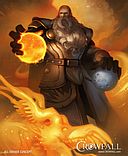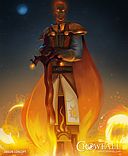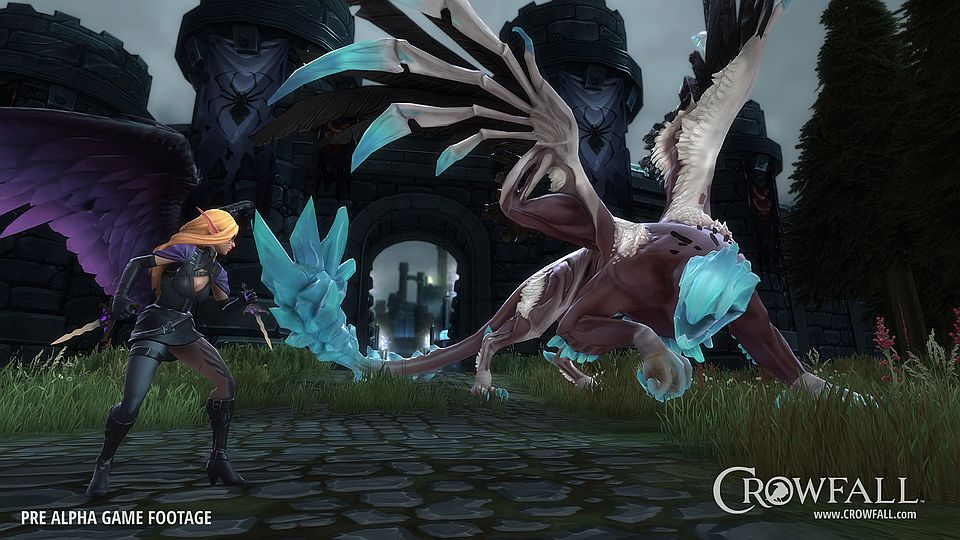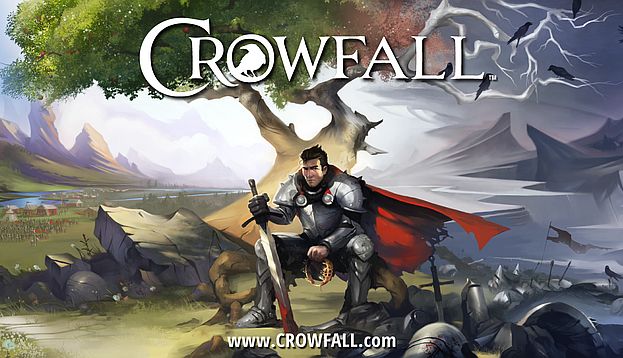The growth in the gaming market has occurred in several dimensions — the revenues from gaming are higher than ever, heading towards $100 billion worldwide; the market has gone global, with over a billion gamers across the globe; and the demographics of gaming has spread to encompass nearly every age. The gaming market has also expanded in other ways by providing multiple opportunities for game creators to bring products to market through digital distribution, with a wider variety of platforms and business models than ever before. The opportunities are compelling enough that many veterans of the gaming industry are taking advantage of them to try new things, and this is amply illustrated by ArtCraft Entertainment.
ArtCraft Entertainment is the combined effort of J. Todd Coleman (director, Shadowbane, Wizard101, Pirate101) and Gordon Walton (executive producer, Ultima Online, Star Wars Galaxies, Star Wars: The Old Republic). The stated goal of ArtCraft Entertainment is to “push the design of Massively Multiplayer Online games in bold new directions.” They are doing that not only with the design of the game, but with the marketing — which is, essentially, to let the game speak for itself. Their game, Crowfall, is an MMORPG crossbred with an RTS, and it approaches some of the basic MMORPG problems in an unusual way.

Not Gordon Walton
The marketing for Crowfall began with a teaser campaign just before Christmas last year. “We put up a sign-up page for Crowfall at play2crush.com,” explained J. Todd Coleman, CEO and game director. “Play2Crush was a statement of purpose — more manifesto than teaser. Without providing a single screenshot or even naming the game, the site has already collected 10,000 registrations. We are blown away by the response. We clearly struck a nerve.” The play2crush.com site has now been replaced with an official landing page for the game, which can be found at www.crowfall.com. Players are invited to visit www.crowfall.com to join the community, find information about the game, read and post to the development forums, and to sign up for future beta tests.
Now the campaign has moved into the next phase, with the Crowfall Kickstarter beginning today. It’s off to an auspicious start, as it’s already over 50% funded only partway through the first day, with over 4,000 backers. “Crowdfunding has revolutionized the game market, allowing developers access to funds and customers,” said ArtCraft co-founder and President Gordon Walton. “The traditional publishing model works for mass-market gaming, but fails to serve many of the more experienced and discriminating gamers. Crowdfunding allows us to serve these customers directly with experiences crafted specifically for them, using their direct feedback and funding.”

Not J. Todd Coleman
Marketing for Crowfall is planned to be mostly viral and community based, and that’s why the Kickstarter is so important. Raising money is good, but Walton and Coleman have enough of a reputation and enough connections that they could raise sufficient money from investors to create this product. “For us it’s market proof,”said Walton. “We don’t really need the money, but we really need the market proof because that allows us to raise the other money.” Coleman agreed, noting the early goals are fairly conservative. “If we can just prove that there’s five to ten thousand people who dig this idea at the concept stage enough to give us money, then we can show pretty easily that there’s fifty to a hundred thousand who will pay for it once it’s done,” Coleman said. “That’s enough to make a really solid business case for small team to build it, and scale it up from there.”
The community is already very active. “We have 2,000, 3,000 posts a day,” noted Coleman. That’s the sort of engagement you want to see with a game, and it’s impressive given that the game has barely been revealed. This sort of marketing effort is really a combination of game design, community, and marketing — floating the game idea out there in detail and seeing what kind of response can be generated. ArtCraft wants Crowfall to be a product of the community, and the Kickstarter is part of the test to see just how big the audience is for the concept. “I believe that in the MMO space as a whole, what they crave is something different,” said Coleman. “The idea I pitched was the unholy love child of Game of Thrones, EVE Online, and Shadowbane. It’s a virtual world simulator, but a world that’s undergoing painful destruction.”
Coleman and Walton have been happy with the rapid progress since they unveiled the concept. “Last December we put up a site saying we were going to do something different, and it’s been gaining momentum and traction and noise and buzz and hype ever since,” Coleman said. “We got something up and running now, and we’re trying to turn it into something unique. We think people will sit back and say, ‘That’s definitely different.’ They may not all love it.” You can’t make everybody happy, of course. “In fact, we want to make a lot of people unhappy,” Walton added with a grin. “We want to make a smaller group of people very happy.”

In strategy games with a winner and a loser, not every player is comfortable with that, especially when the stakes are high. On the other hand, that’s exactly what other players crave. In Crowfall, the heroes are eternal but the campaign worlds end. “The point is you go back, you lick your wounds and go back and do it again, and hope springs eternal,” said Coleman. “Shadowbane actually did this beta by accident, because occasionally we would screw up the game so badly that we would have to wipe the servers and start all over. Every time that happened, the next weekend I’d have 35 percent to 40 percent concurrency, which is unheard of in an MMO.” Sometimes those accidents lead to design inspirations, and that’s what Coleman is convinced they were missing before.
ArtCraft has licensed a system to do procedural terrain generation, so every map can be different — and fully destructible, since it’s constructed of voxels (similar to Minecraft, but much finer-grained). They brought Raph Koster in first as a formal advisor and now as a full designer to make the economy a core component of the game. This is where it gets really interesting, according to Coleman. He believes that many people will enjoy the exploration and crafting elements of the early stages of the game, as they build towards the large-scale conflicts of the latter stages.
What’s the business model for Crowfall “We looked at the ones that were out there, and the ones we liked the best were Guild Wars, which is buy once and you never have to pay again, and EVE Online, which is passive training where you just buy an account and you train,” said Coleman. “We combined those into one. You can buy the game once, you can play it forever, and you get three character slots. One of those characters can be training whether you’re online or off, and there’s an optional subscription where if you subscribe all three of your characters can be training offline. It’s not unbalancing because at any given moment in the game, my one guy against your one guy, I don’t get the benefit of that. But I have more breadth because I can play with different characters. The other thing we’re going to do is let people buy additional one-month subscriptions and trade that with other people in the game. So people who don’t pay can get the same benefit by providing in-game services.”

